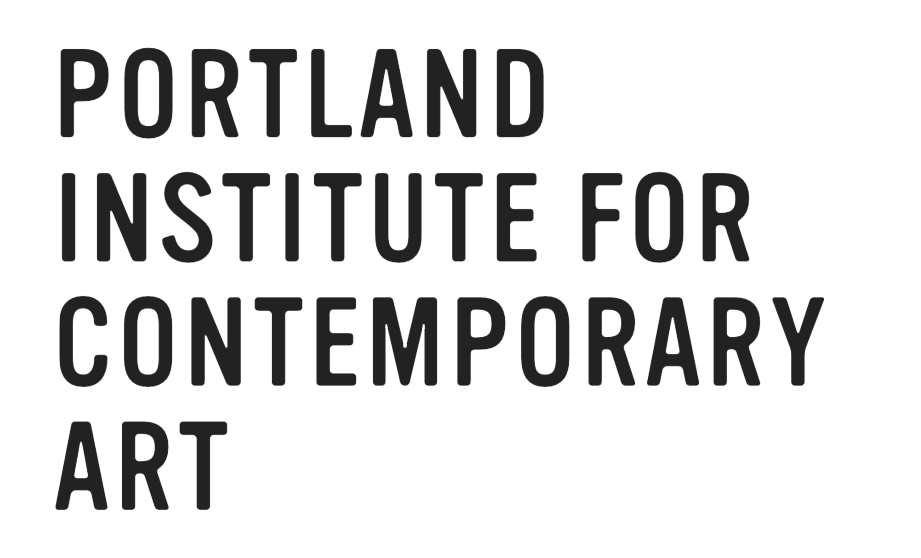ACCESSIBILITY
CART captioning will be provided.
Panel Discussion: Garrick Imatani, Travis Stewart, and Brook Colley with Ashley Stull Meyers
DESCRIPTION
Portland-based curator and writer Ashley Stull Meyers facilitates a conversation with Garrick Imatani and Travis Stewart (Chinook, Kalapuya, Rogue River) about The Drift, the culmination of their multi-year project that engages questions of repatriation, healing, and Indigenous futures through virtual reality, publication, digital fabrication, and photography. Imatani and Stewart will be joined by special guest Dr. Brook Colley (Wasco, Warm Springs, Eastern Cherokee; Enrolled: Eastern Band of Cherokee), Assoc. Professor & Chair of the Native American Studies Program at Southern Oregon University.
ABOUT THE PARTICIPANTS
Travis Stewart is a contemporary Northwest artist of Chinook, Kalapuya, and Rogue River descent. He lives in Grand Ronde, Oregon, and works in a variety of mediums to depict stories defined by the cultural landscape and design of the Willamette Valley and Columbia River people. He also works as a curator at Chachalu Museum and Cultural Center (Grand Ronde, OR) and has devoted his life to the preservation of the art and culture of the tribes of Western Oregon. Travis is a founding member of the Shawash Ili?i Kanim Tilixam, which is a nonprofit cultural preservation group and canoe family that works to impart traditional teachings to at-risk tribal youth through song, dance, language, and art.
---
Garrick Imatani is an artist who uses performance, functional objects, or interaction to bring people into their own body and subject. Working across sculpture, photography, video, and installation, Garrick's recent projects focus on reimagining racialized historical erasures into more believable and inspired futures. Past works have included collaborating with illegally-surveilled activists to readjust city archives, re-enacting labor on the transcontinental railroad, and working with members of Grand Ronde Tribes to replicate their sacred meteorite held at the American Museum of Natural History.
---
Dr. Brook Colley is an associate professor and chair of the Native American Studies program at Southern Oregon University. Colley’s research is focused on federal Indian law and policy, Oregon Tribes, intertribal relations and conflict, and community health and healing. Her book Power in the Telling: Grand Ronde, Warm Springs, and Intertribal Relations in the Casino Era was published in 2019 by the University of Washington Press and it was a finalist for the Frances Fuller Victor Award for General Nonfiction. In 2014, she received her PhD in Native American Studies from the University of California, Davis, and is currently working on an intertribal Indigenous-led collaboration to enhance first food access and first food production in Southern Oregon. She lives in Jackson County with her daughter and two pups named Honey and Leonard Cohen.
---
Ashley Stull Meyers (she/her/hers) is a writer, editor, and culture worker. She has curated exhibitions and public programming for a diverse set of arts institutions along the West Coast, including those in San Francisco, CA, Oakland, CA, Seattle, WA, and Portland, OR. She has been in academic residency at the Bemis Center for Contemporary Art (Omaha, NE) and the Banff Centre (Banff, Alberta). She has served as Northwest Editor for Art Practical and has contributed writing to BOMB, Rhizome, ARTS.BLACK, and SFAQ/NYAQ. In 2017 Stull Meyers was named director and curator of The Art Gym and Belluschi Pavilion at Marylhurst University, and the following year was made co-curator of the 2019 Portland Biennial. Currently, she is program director for the Multicultural Resource Center at Reed College, and is contracting as an independent curator.
ABOUT TBA:21 INSTITUTE
TBA Institute is a series of free, public programs that connect artists and audiences through deep discussion and critical conversation and serve to illuminate the ideas and inquiries behind festival artists' projects. Through the Institute, artists share their processes of creating and collaborating; their forms of engagement with communities and publics; and the social, political, cultural, and aesthetic contexts and concerns surrounding their work. Through guest artist lectures, panels and dialogues with invited moderators, and interactive workshops, the TBA Institute offers a range of ways to engage more deeply with the festival and with each other.
Please note that some TBA Institute events will be virtual (streamed online), while others will be held in-person for a limited-capacity, masked audience/participant group in the PICA Pavilion (back lot of PICA). We know that not everyone is able to gather in place right now. As such, most in-person events will be recorded and made available and accessible online shortly thereafter. Some of these recorded videos will be captioned.
Please refer to the TBA Festival website for a full Institute schedule, specific information about each event, accessibility, and other details.
Please note that a few events will require pre-registration, with instructions provided on the event webpage.
All virtual events (streamed online) will be captioned via auto- or CART captioning.
Some virtual events and some live, in-person events will be ASL-interpreted. These will be noted on each event listing on the TBA website.
All of the above information regarding access will be updated as confirmed.


